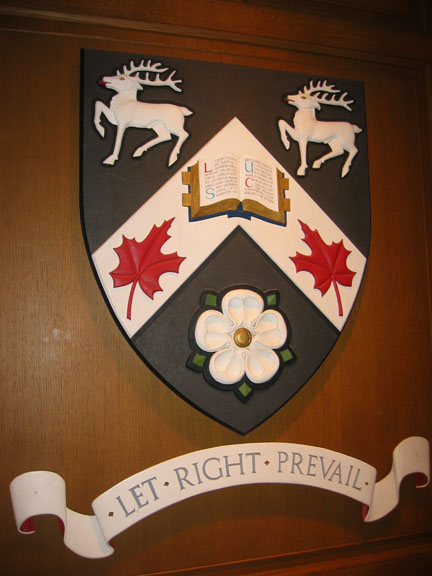Consider this scenario: You’re an Ontario lawyer drafting a will for a client who is so pleased with your work that she asks you to write yourself in the will. When she dies, you are to inherit her BMW, she says.

Could you take your client up on this offer without compromising your professional ethics?
As the Law Society of Upper Canada’s Convocation decided yesterday to adopt a proposed rule that could get you in trouble for accepting an offer of this kind, you may want to think twice about taking the car. The new rules will make an exception for clients who are also family members, but you may not otherwise write a clause in a will that gives you benefits.
The Federation of Law Societies of Canada made the proposal along with many other tweaks to the Rules of Professional Conduct. The proposals are an attempt to create more consistent rules across the country as the recently signed mobility agreement will allow lawyers to practise anywhere in Canada once it’s implemented.
In addition to the suggested rules on accepting testamentary gifts, the law society adopted some of the other proposals. Most of the changes, which will come into effect in October 2014, are minor with little or no impact on lawyers.
The following are more significant ones noted in a
report prepared for Convocation.
• A new sentence will be added to the definition of conflict of interest. The addition, which is in line with the Supreme Court’s decision in
Canadian National Railway Co. v. McKercher LLP, says the risk of conflict “must be more than a mere possibility; there must be a genuine, serious risk to the duty of loyalty or to client representation arising from the retainer.”
• If lawyers know, or are ought to know, that a piece of information regarding their work was sent to them by mistake, the new rules require them to notify the sender.
• Retired appellate judges who want to go back to law practice will have to wait three years before they can represent a client at the court on which they served as a judge. The current rules restrict retired judges from appearing before the very bench they sat without prior approval but did not include a set cooling off period.
Update Oct. 28: This article has been corrected. An earlier version states the law society’s amended rules of professional conduct allow lawyer to accept testamentary gifts from clients whose wills they are drafting. In fact, the amended rules make an exception only for family members who give lawyers testamentary gifts.

 Could you take your client up on this offer without compromising your professional ethics?
Could you take your client up on this offer without compromising your professional ethics?